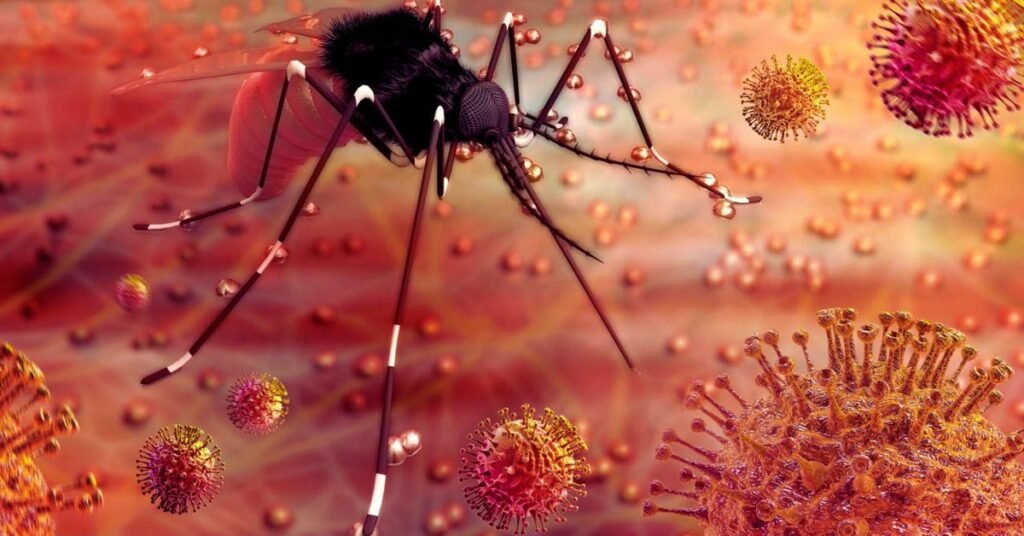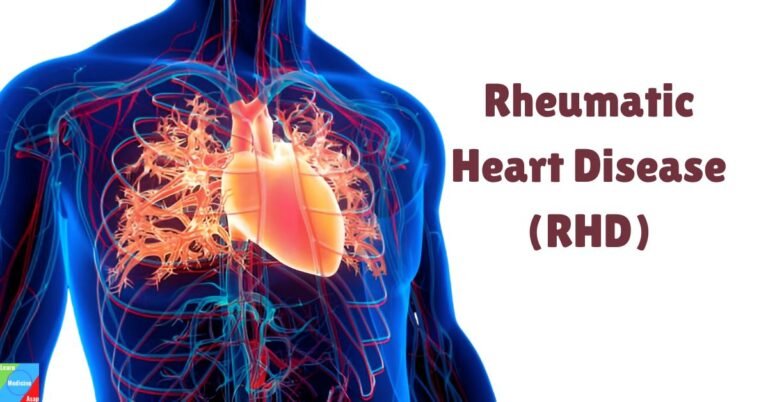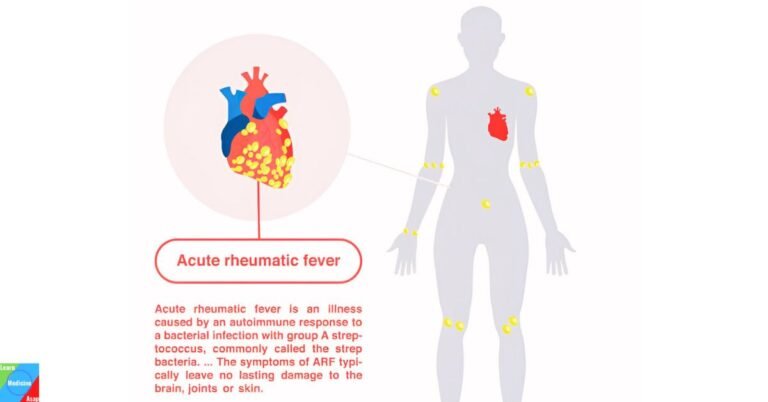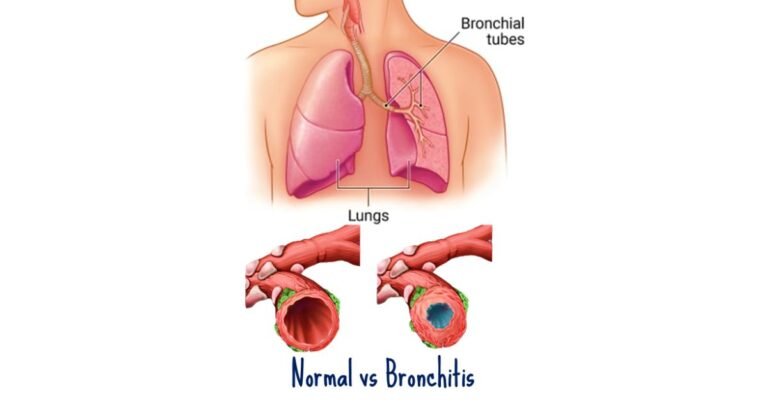Causes | Symptoms | Diagnosis | Treatment | Complications | Prevention | Takeaway | FAQs
The Zika virus is a mosquito-borne virus primarily transmitted by Aedes mosquitoes, which are active during the day. Named after the Zika Forest in Uganda where it was first identified in monkeys in 1947, the virus garnered significant attention in the 2010s due to outbreaks in various parts of the world, particularly in South America, Central America, and the Caribbean.
What is zika virus?
Zika virus is a flavivirus primarily transmitted to humans through the bite of infected Aedes mosquitoes, particularly Aedes aegypti and Aedes albopictus. The virus typically causes mild symptoms such as fever, rash, joint pain, and conjunctivitis (red eyes), and these symptoms usually last for several days to a week.

What causes zika virus infection?
Zika virus is primarily caused by the transmission of the Zika virus, a member of the Flaviviridae family, primarily through the bite of infected Aedes mosquitoes. The main species responsible for transmitting Zika virus to humans are Aedes aegypti and Aedes albopictus. These mosquitoes are commonly found in tropical and subtropical regions around the world, making them significant vectors for the spread of the virus.
When an Aedes mosquito feeds on the blood of a person infected with Zika virus, it ingests the virus along with the blood meal. The virus then replicates within the mosquito’s body, infecting its salivary glands. Subsequently, when the infected mosquito bites another person, it injects the virus into the bloodstream of the new host, thereby transmitting Zika virus.
In addition to mosquito bites, Zika virus transmission can occur through other means:
- Sexual transmission: Zika virus can be sexually transmitted from an infected person to their partner. The virus can persist in semen for an extended period after the acute infection has resolved, making sexual transmission possible even when the infected individual is no longer symptomatic.
- Vertical transmission: Pregnant women infected with Zika virus can pass the virus to their unborn child during pregnancy or childbirth. This vertical transmission can lead to congenital Zika syndrome in the newborn, which includes microcephaly and other developmental abnormalities.
- Blood transfusion: In rare cases, Zika virus transmission has occurred through blood transfusions, where an infected individual donates blood containing the virus to a recipient.
- Laboratory exposure: Healthcare workers and laboratory personnel can be at risk of acquiring Zika virus infection through accidental exposure to infected blood or other bodily fluids. However, such incidents are relatively uncommon and can be mitigated through appropriate safety protocols.
The factors contributing to the spread of Zika virus include the widespread distribution of Aedes mosquitoes, urbanization, globalization, climate change, and travel to regions where the virus is endemic or experiencing outbreaks. Additionally, environmental factors such as stagnant water and poor sanitation provide conducive breeding grounds for mosquitoes, further facilitating the transmission of the virus.
What are the symptoms of zika virus infection?
The symptoms of Zika virus infection can vary widely, with many individuals experiencing no symptoms at all. When symptoms do occur, they are typically mild and resemble those of other mosquito-borne illnesses, making Zika virus infection challenging to diagnose based on symptoms alone. However, common symptoms of Zika virus infection may include:
- Fever: Fever is one of the most common symptoms of Zika virus infection. The fever associated with Zika infection is usually mild to moderate and may not be present in all cases.
- Rash: A rash often accompanies Zika virus infection and can appear on the body, including the face, trunk, arms, legs, and palms of the hands or soles of the feet. The rash may be itchy and typically resolves within a week.
- Joint pain: Zika virus infection can cause joint pain, also known as arthralgia, particularly in the hands and feet. Joint pain associated with Zika infection is usually mild and may last for several days to a week.
- Conjunctivitis: Zika virus infection can lead to conjunctivitis, commonly known as pink eye, which is characterized by redness, irritation, and inflammation of the conjunctiva (the thin, transparent layer covering the white part of the eye and the inner surface of the eyelids). Conjunctivitis associated with Zika infection is usually mild and self-limiting.
- Muscle pain: Some individuals infected with Zika virus may experience muscle pain, also known as myalgia, which can affect various muscle groups in the body.
- Headache: Headaches are another common symptom of Zika virus infection and may range from mild to severe. Headaches associated with Zika infection can be accompanied by other symptoms such as fever and rash.
It’s important to note that the symptoms of Zika virus infection typically appear within 3 to 14 days after exposure to the virus and usually resolve within a week. However, some individuals may experience prolonged or recurring symptoms.
How is zika virus infection diagnosed?
Diagnosing Zika virus infection involves a combination of clinical evaluation, laboratory testing, and consideration of the patient’s medical history, including recent travel to areas with ongoing Zika virus transmission. Given that the symptoms of Zika virus infection can resemble those of other mosquito-borne illnesses, such as dengue fever and chikungunya, accurate diagnosis is crucial for appropriate management and public health response.
Clinical evaluation: Healthcare providers assess the patient’s symptoms, medical history, and recent travel history to determine the likelihood of Zika virus infection. Symptoms commonly associated with Zika virus infection include fever, rash, joint pain, conjunctivitis, muscle pain, and headache. However, it’s important to note that not all individuals infected with Zika virus will develop symptoms, and the symptoms can vary in severity.
Laboratory testing:
- Molecular tests: Polymerase chain reaction (PCR) tests can detect the presence of Zika virus RNA in blood, urine, or other body fluids. These tests are most accurate when performed during the acute phase of illness, typically within the first week of symptom onset. PCR tests can also be used to detect Zika virus RNA in amniotic fluid for pregnant women with suspected Zika virus infection.
- Serological tests: Serological tests, such as enzyme-linked immunosorbent assays (ELISA) and plaque reduction neutralization tests (PRNT), detect antibodies produced by the body in response to Zika virus infection. IgM antibodies are typically detectable within the first week of illness and may persist for several weeks to months. IgG antibodies develop later and provide long-term immunity against Zika virus. Serological tests can help confirm recent or past Zika virus infection, especially in individuals who may no longer have detectable virus RNA.
Differential diagnosis: Given the overlap in symptoms with other arboviral infections, healthcare providers may also consider testing for diseases such as dengue fever and chikungunya virus infection, particularly in regions where these viruses co-circulate with Zika virus.
Follow-up and monitoring: For pregnant women with confirmed or suspected Zika virus infection, close monitoring of fetal development through ultrasound examinations may be recommended to detect any signs of congenital Zika syndrome, including microcephaly and other birth defects.
How is zika virus infection treated?
Currently, there is no specific antiviral treatment available for Zika virus infection. Therefore, management primarily focuses on alleviating symptoms and providing supportive care. The majority of individuals infected with Zika virus experience mild symptoms or are asymptomatic, and they typically recover on their own without medical intervention. However, for those experiencing more severe symptoms or complications, the following measures may be recommended:
- Rest and hydration: Adequate rest and hydration are essential for individuals with Zika virus infection, especially if they are experiencing fever, muscle pain, or other flu-like symptoms. Drinking plenty of fluids helps prevent dehydration and supports the body’s immune response.
- Pain relief: Over-the-counter pain relievers, such as acetaminophen (Tylenol) or ibuprofen (Advil, Motrin), can help alleviate fever, headache, muscle pain, and joint pain associated with Zika virus infection. It’s important to follow the recommended dosage and consult a healthcare provider, especially for pregnant women or individuals with underlying health conditions.
- Avoiding nonsteroidal anti-inflammatory drugs (NSAIDs): Due to the risk of bleeding complications associated with dengue fever, another mosquito-borne illness that may coexist in regions where Zika virus is prevalent, individuals suspected of having Zika virus infection are advised to avoid NSAIDs, such as aspirin and ibuprofen, until dengue fever is ruled out.
- Seeking medical care: Individuals experiencing severe symptoms, such as persistent high fever, severe headache, difficulty breathing, or neurological symptoms, should seek medical attention promptly. Pregnant women who develop symptoms of Zika virus infection should also seek medical care to ensure appropriate monitoring and management, as they may be at risk of complications such as fetal microcephaly and other congenital abnormalities.
- Pregnancy management: Pregnant women with confirmed or suspected Zika virus infection require close monitoring by healthcare providers. Depending on the gestational age and other factors, additional tests such as ultrasound examinations may be recommended to assess fetal development and screen for congenital Zika syndrome. Counseling and support services should also be provided to pregnant women and their families to address concerns related to Zika virus infection during pregnancy.
What are the complications of zika virus infection?
Zika virus infection is generally mild and self-limiting, with the majority of individuals experiencing only mild symptoms or no symptoms at all. However, Zika virus infection can lead to complications, particularly in certain populations, including pregnant women and their unborn children. Here are some of the potential complications associated with Zika virus infection:
- Congenital zika syndrome: One of the most significant complications of Zika virus infection is congenital Zika syndrome, which occurs when a pregnant woman is infected with Zika virus and passes the virus to her unborn child during pregnancy. Congenital Zika syndrome can result in a range of birth defects and developmental abnormalities, including microcephaly (abnormally small head and brain), intracranial calcifications, ventriculomegaly (enlargement of brain ventricles), and other neurological impairments. These birth defects can cause lifelong disabilities and developmental delays in affected children.
- Pregnancy complications: In addition to congenital Zika syndrome, Zika virus infection during pregnancy can increase the risk of other pregnancy complications, including miscarriage, stillbirth, and preterm birth. Pregnant women infected with Zika virus may also experience complications such as preeclampsia and placental insufficiency, which can affect maternal and fetal health.
- Guillain-Barré syndrome (GBS): Guillain-Barré syndrome is a rare neurological disorder that has been associated with Zika virus infection in some cases. GBS is characterized by muscle weakness, numbness, and paralysis, which can progress rapidly and lead to respiratory failure and other serious complications. While the exact mechanism of Zika virus-related GBS is not fully understood, it is believed to result from an autoimmune reaction triggered by the virus.
- Neurological complications: Zika virus infection has been linked to various neurological complications in adults, including meningitis, encephalitis, and myelitis (inflammation of the spinal cord). These neurological complications can cause symptoms such as headache, confusion, seizures, and paralysis, and may require hospitalization and supportive care.
- Other rare complications: While less common, Zika virus infection has also been associated with other rare complications, such as acute disseminated encephalomyelitis (ADEM), which is characterized by widespread inflammation of the brain and spinal cord, and acute retinal necrosis (ARN), a severe eye infection that can lead to vision loss.
It’s important to note that the risk of complications from Zika virus infection varies depending on factors such as the individual’s age, immune status, and underlying health conditions.
How is zika virus infection prevented?
Preventing Zika virus infection primarily involves implementing measures to reduce the risk of mosquito bites, minimize the spread of the virus through sexual transmission and blood transfusions, and control mosquito populations in areas where Zika virus is prevalent. Here are some key strategies for preventing Zika virus:
Mosquito bite prevention:
- Use insect repellents: Apply EPA-registered insect repellents containing DEET, picaridin, IR3535, oil of lemon eucalyptus (OLE), or para-menthane-diol (PMD) to exposed skin and clothing.
- Wear protective clothing: Wear long-sleeved shirts, long pants, socks, and shoes to cover exposed skin, especially during peak mosquito activity times (dawn and dusk).
- Use mosquito nets: Sleep under a mosquito bed net, particularly if staying in accommodations without window screens or air conditioning.
- Avoid standing water: Eliminate or empty containers that collect and hold water, such as flower pots, buckets, tires, and bird baths, to reduce mosquito breeding sites around homes and communities.
Safe sexual practices:
- Practice safe sex: Use condoms consistently and correctly during sexual activity, especially if one partner has traveled to or resides in an area with ongoing Zika virus transmission. This precaution is particularly important for pregnant women and their partners to prevent sexual transmission of the virus to the fetus.
- Abstain or delay pregnancy: Consider delaying pregnancy or avoiding travel to areas with ongoing Zika virus outbreaks, particularly for individuals at higher risk of complications, such as pregnant women or couples planning pregnancy.
Blood safety measures:
- Screen blood donations: Implement screening measures to test donated blood and blood products for Zika virus to prevent transfusion-related transmission of the virus.
- Follow safe injection practices: Ensure healthcare facilities follow safe injection practices and sterilization procedures to minimize the risk of needlestick injuries and potential exposure to Zika virus.
Travel precautions:
- Check travel advisories: Stay informed about travel advisories and warnings issued by health authorities regarding areas with ongoing Zika virus transmission. Consider postponing nonessential travel to these areas, particularly for pregnant women and individuals at higher risk of complications.
- Take precautions during travel: If travel to areas with Zika virus transmission is unavoidable, take appropriate measures to prevent mosquito bites, such as using insect repellents, wearing protective clothing, and staying in accommodations with air conditioning or screened windows.
Community-based mosquito control:
- Implement mosquito control measures: Implement community-based mosquito control programs, including larval control (eliminating mosquito breeding sites) and adult mosquito control (using insecticides and other methods) to reduce mosquito populations and minimize the risk of Zika virus transmission.
- Public awareness and education: Conduct public awareness campaigns to educate communities about the importance of mosquito bite prevention, safe sexual practices, and other preventive measures to reduce the risk of Zika virus infection.
Preventing Zika virus infection requires a comprehensive and multi-faceted approach involving individuals, communities, healthcare providers, and public health authorities. By implementing these preventive measures, individuals can reduce their risk of Zika virus infection and contribute to efforts to control the spread of the virus and protect public health.
Takeaway
The Zika virus poses a significant threat to public health, particularly in regions where the Aedes mosquito thrives. Understanding its transmission, symptoms, and potential complications is crucial for effective prevention and control. Implementing robust mosquito control measures, promoting awareness about safe sexual practices, and supporting research for vaccines and treatments are essential steps in combating the spread of Zika virus and protecting vulnerable populations.
Frequently Asked Questions
Q: What is Zika virus infection, and how does it spread?
A: Zika virus infection is a viral illness primarily transmitted to humans through the bite of infected Aedes mosquitoes. It can also spread through sexual contact, blood transfusions, and from mother to child during pregnancy or childbirth.
Q: What are the symptoms of Zika virus infection?
A: The symptoms of Zika virus infection include fever, rash, joint pain, conjunctivitis (red eyes), muscle pain, and headache. However, many people infected with Zika virus may not experience any symptoms at all.
Q: How is Zika virus infection diagnosed?
A: Zika virus infection is diagnosed through clinical evaluation, laboratory testing (such as PCR and serological tests), and consideration of the patient’s medical history and recent travel to areas with Zika virus transmission.
Q: What are the potential complications of Zika virus infection?
A: Complications of Zika virus infection can include congenital Zika syndrome in babies born to infected mothers, Guillain-Barré syndrome, neurological complications, and pregnancy-related issues such as miscarriage and preterm birth.
Q: Is there a treatment for Zika virus infection?
A: Currently, there is no specific antiviral treatment for Zika virus infection. Treatment typically involves supportive care to alleviate symptoms, such as rest, hydration, and pain relief.
Q: How can Zika virus infection be prevented?
A: Preventive measures for Zika virus infection include avoiding mosquito bites by using insect repellents and wearing protective clothing, practicing safe sex to prevent sexual transmission, and implementing community-based mosquito control measures.
Q: What should pregnant women know about Zika virus infection?
A: Pregnant women should take extra precautions to avoid Zika virus infection, as it can lead to serious complications for the fetus. This includes avoiding travel to areas with Zika virus transmission and practicing safe sex if their partner has traveled to such areas.
Q: What is the current status of Zika virus outbreaks worldwide?
A: Zika virus outbreaks have occurred in various parts of the world, with ongoing surveillance efforts by public health authorities to monitor the situation and prevent further spread of the virus.
Q: What research is being done to develop vaccines and treatments for Zika virus infection?
A: Researchers are actively working on developing vaccines and treatments for Zika virus infection, with ongoing clinical trials and studies aimed at preventing and managing the disease.
Q: Where can I find reliable information and resources about Zika virus infection?
A: Reliable information and resources about Zika virus infection can be found from government health agencies, international organizations, and reputable medical websites, ensuring accurate and up-to-date information.
References
- World Health Organization (WHO). (2020). Zika virus. Retrieved from https://www.who.int/news-room/fact-sheets/detail/zika-virus
- Centers for Disease Control and Prevention (CDC). (2020). Zika virus. Retrieved from https://www.cdc.gov/zika/index.html
- Rasmussen, S. A., Jamieson, D. J., Honein, M. A., & Petersen, L. R. (2016). Zika virus and birth defects—reviewing the evidence for causality. New England Journal of Medicine, 374(20), 1981-1987.
- Musso, D., & Gubler, D. J. (2016). Zika virus. Clinical Microbiology Reviews, 29(3), 487-524.
- The Lancet. (2017). Zika virus infection: global update on epidemiology and potentially associated clinical manifestations. The Lancet, 389(10064), 177-188.



